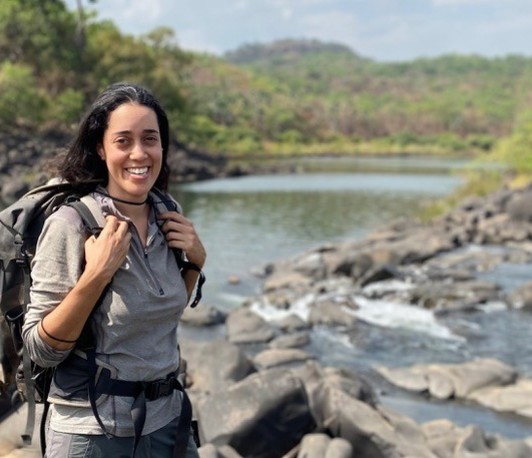Examining the interplay of cooperation and conflict through the lens of Pan
Institute Seminar by Liran Samuni
- Date: Oct 29, 2024
- Time: 10:30 AM - 11:30 AM (Local Time Germany)
- Speaker: Liran Samuni
- Liran Samuni is an Emmy Noether Group Leader at the German Primate Center. Her work synthesizes insights from behavioral ecology, evolutionary anthropology, and endocrinology to explore the evolutionary origins of cooperation and culture. Focusing on chimpanzees and bonobos, Samuni investigates how ecological challenges and intergroup conflict drive cooperation and behavioral diversity. She conducts research on bonobos at the Kokolopori Bonobo Reserve in DR Congo and studies chimpanzees at her co-directed long-term sites in Taï National Park, Côte d’Ivoire, and Moyen-Bafing National Park, Guinea.
- Location: Bückle St. 5a, 78467 Konstanz
- Room: Seminar room MPI-AB Bücklestrasse + Online
- Host: Max Planck Institute of Animal Behavior
- Contact: tmontgomery@ab.mpg.de

Across taxa, social groups compete for territories and the resources they provide, engaging in interactions that pose significant fitness risks. Yet, the outcomes of intergroup conflicts are not fixed; individuals can mitigate these risks through within-group cooperation, allowing groups to gain the benefits of conflict while minimizing associated costs. As such, intergroup conflict is considered as a strong selective pressure, shaping the social dynamics, cooperation, and cognition of social species. Despite its significance, the evolutionary role of intergroup conflict in influencing social and cooperative attitudes is rarely examined, limiting our understanding of these processes. Chimpanzees (Pan troglodytes) and bonobos (Pan paniscus), as a pair, offer a unique opportunity to explore this question. These two closely related species share similar history trajectories, social environments, and cognitive capacities, but have also diverged in distinct ways. Chimpanzees live in a male-dominated society characterized by hostility towards out-groups, whereas bonobo are known for their high female-status society and relatively tolerant intergroup interactions. In this talk, I will examine how these contrasting behaviors in our closest living relatives provide insights into the evolution of social strategies and the role of intergroup interactions in shaping their societies. By leveraging and evaluating the similarities and differences between them, I will explore how in-group/out-group identities and pairwise versus collective cooperation manifest in the two species, and their potential link to hostile or peaceful out-group attitudes. I will evaluate the conditions and mechanisms underlying violence and cooperation, focusing on the importance of differentiated social relationships and bonds in guiding cooperative exchanges.
The MPI-AB Seminar Series is open to members of MPI and Uni Konstanz. The zoom link is published each week in the MPI-AB newsletter.